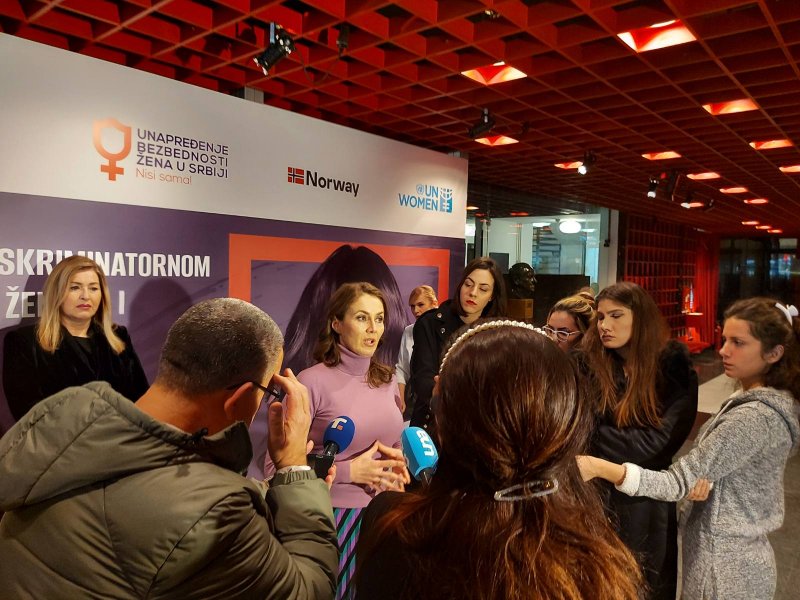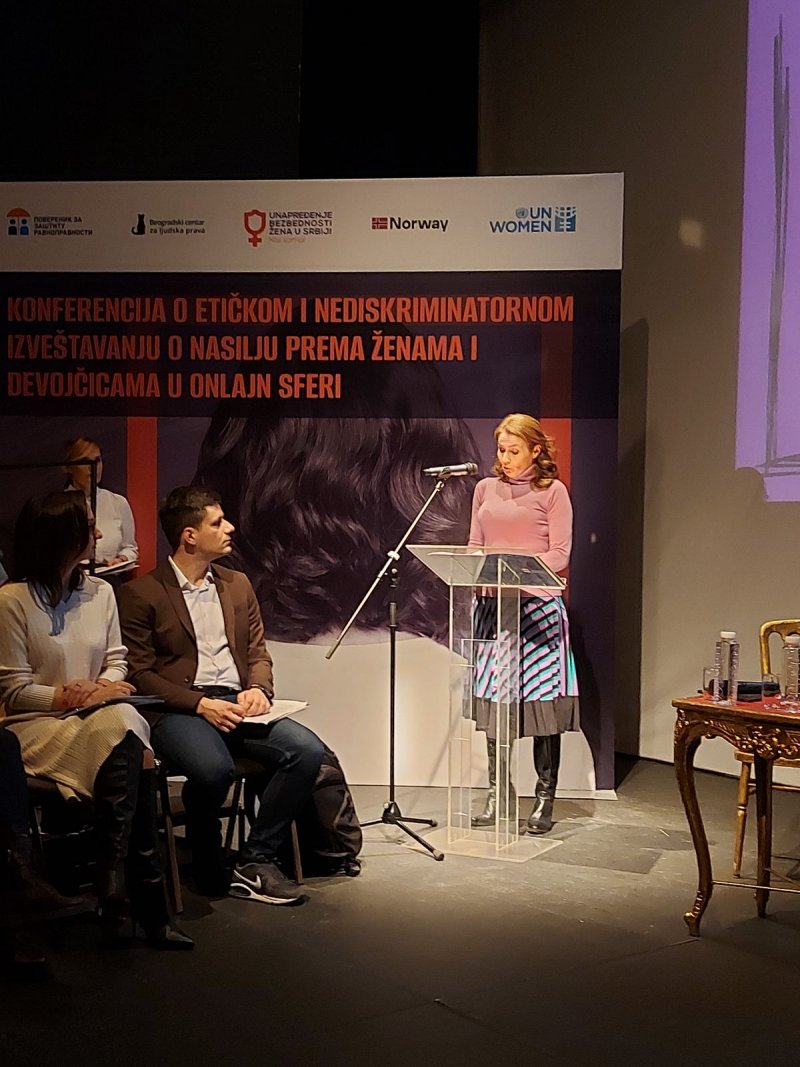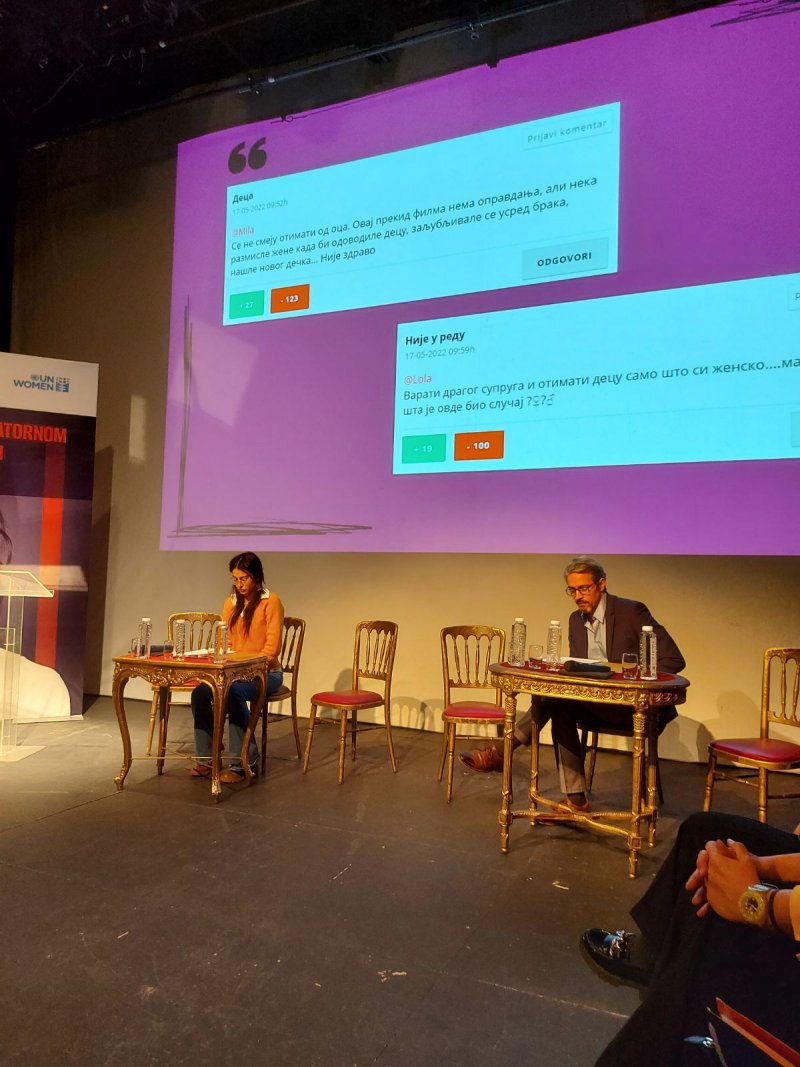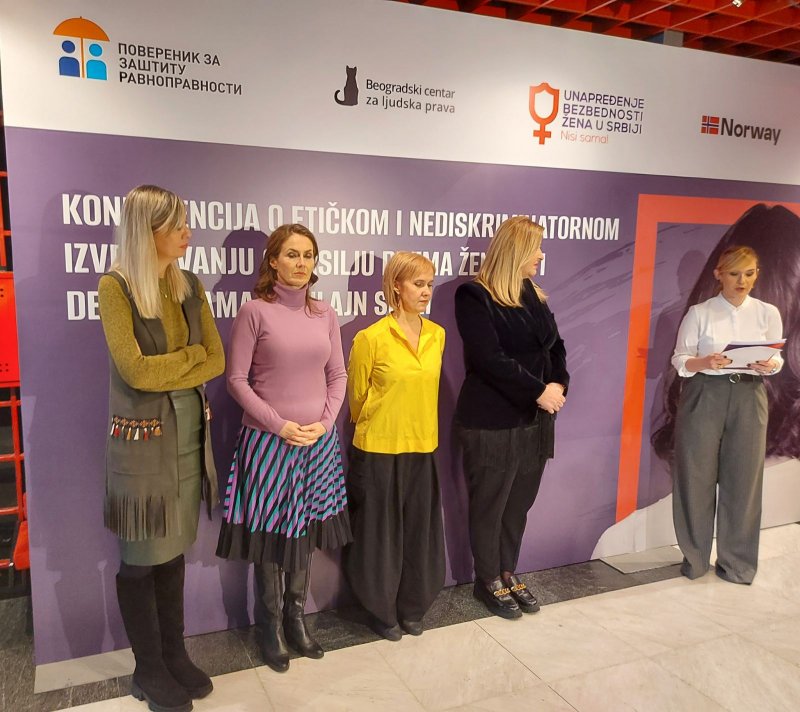The media play an important role in creating public opinion and education, and freedom of expression is crucial. However, freedom of expression is not absolute and it is closely related to other rights and freedoms, the Commissioner for the Protection of quality, Brankica Janković, pointed out at the conference on ethical reporting on violence against women in the online sphere, organized by UN Women Serbia in cooperation with the Belgrade Center for Human Rights and the Embassy of Norway.
The Commissioner pointed out that inappropriate and unethical media coverage of violence against women and girls contributes to their secondary victimization and harms the victims in numerous ways, which is especially significant considering that online media are increasingly influential. Publications, especially in tabloids, contain sensationalist and stereotypical expressions about violence and women. The victim is held responsible for the violence, and the abuser is vindicated. Precisely because of this, it is necessary to have a regulated area of reporting on gender-based violence and standards that protect the dignity of the victim, as well as to know the procedures for exercising and defending rights in cases of unethical and discriminatory media reporting, Janković concluded.
At the conference, the Handbook for ethical and non-discriminatory reporting on violence against women and girls in the online sphere was presented, intended for journalists, as well as editors of online media, but also for everyone who wants to improve their knowledge and skills when it comes to reporting on socially sensitive topics, especially those such as violence against women.





